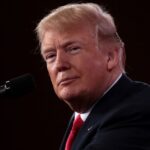


Elon Musk has ignited a debate in Germany with his public support of a right-wing political party, leading to the resignation of an editor at a major newspaper.
The Independent reported that Musk's endorsement of Alternative for Germany (AfD) through an opinion piece in Welt am Sonntag has caused a stir, resulting in the resignation of the paper's opinion editor, amid discussions on free expression and the role of journalism ahead of Germany's early elections.
Musk expressed his backing for AfD in an editorial published over the weekend, marking his second public endorsement of the party within a month.
This comes as Germany gears up for elections on February 23, which were necessitated by the collapse of the coalition led by Chancellor Olaf Scholz. Amidst the political turbulence, Musk portrayed the AfD as a beacon of hope for Germany's future.
The editorial led to significant fallout, including the resignation of Eva Marie Kogel, the opinion editor of Welt am Sonntag. Kogel expressed her enjoyment of her role but submitted her resignation after Musk's article was published. Her departure underscores the controversy generated by Musk's endorsement of the AfD.
The AfD is currently polling favorably, yet its leader, Alice Weidel, faces a tough path to becoming chancellor.
This is largely due to other political factions' unwillingness to cooperate with AfD. Despite the favorable numbers, the party remains politically isolated, reflecting the complex landscape of German politics.
Musk argued that AfD could lead Germany into a prosperous future, countering accusations of extremism by referencing Weidel's personal life.
His provocative commentary challenged perceptions of AfD and sparked broad discussions about the political alignment of the party. Meanwhile, senior editorial figures at Welt, including incoming editor-in-chief Jan Philipp Burgard, were critical of Musk's views.
Burgard noted agreement with some of Musk's observations but sharply disagreed with the notion that AfD is Germany's salvation.
In their joint statement, Burgard and current editor-in-chief Ulf Poschardt highlighted the importance of maintaining freedom of expression within journalism. Their position reflects a commitment to open debate, despite the contentious nature of Musk's remarks.
The editorial and its aftermath have elicited varied reactions from German media and the public, combining to shape how freedom of expression is interpreted in the context of media responsibility.
Critics of Musk's piece argue that endorsing the AfD gives undue legitimacy to right-wing extremism, as German leftists have successfully painted their opposition as extremists no matter the reality of their opponent's political beliefs.
Amidst this backdrop, the dialogue surrounding Musk's views extends beyond just one editorial, touching upon broader societal issues as the nation approaches its elections.
While some defend the right to express diverse opinions, others worry about the potential consequences of amplifying controversial viewpoints. This balance between openness and responsibility remains a central theme as media outlets navigate the complex political landscape.
As Germany heads towards early elections, the debate over the AfD's position within the country's political sphere will likely intensify. Musk's endorsement, along with the editorial controversy it caused, may well influence the narratives adopted by both media and the electorate in the lead-up to the vote.



